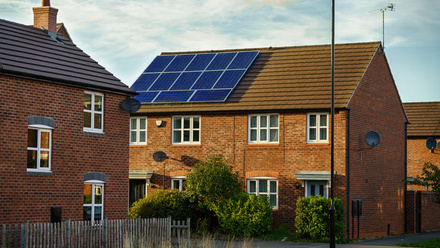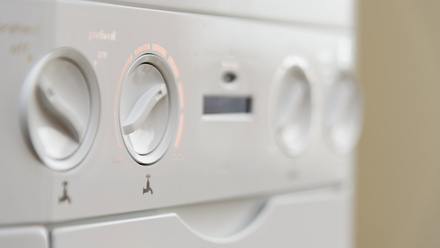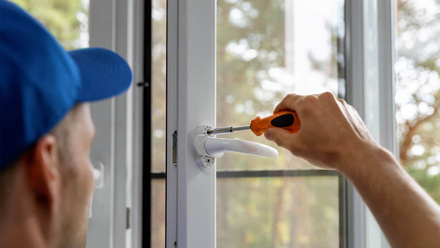Climate change presents us with a huge challenge to ensure that the energy we use is cleaner and greener, and that our homes are fit for the future. Making our homes more energy efficient will reduce carbon emissions, improve health, and cut bills. It will also create jobs and work for qualified builders skilled at installing energy-saving improvements.
The Green Homes Grant scheme has, since its launch on 30 September 2020, simultaneously attracted significant interest while also causing confusion amongst consumers and builders.
What is the Green Homes Grant?
Originally a £2 billion government fund to upgrade existing homes with specific energy efficiency measures, the funding is part of the Government’s coronavirus economic recovery plans. As of the 4 March 2021, the available funding for the scheme has been cut to just £320 million for the new tax year.
Who can apply?
Homeowners or landlords in England are eligible to apply for a Green Homes Grant voucher.
What is it worth?
The Government will provide a voucher that covers two thirds of the cost of a qualifying energy efficiency improvements, up to a limit of £5,000. Lower income applicants can cover the full cost, up to £10,000.
What measures does it cover?
A Green Homes Grant must be used to install at least one of the following primary measures:
- Insulation
- Solid wall
- Under floor
- Cavity wall
- Loft
- Flat roof
- Room in roof
- Park home
- Low carbon heat
- Air or ground source heat pump
- Solar thermal
- Biomass boiler
In addition to at least one primary measure, the grant can be used to fund any of the following secondary measures:
- Draught proofing
- New double / triple glazing or secondary glazing
- New energy efficient doors
- Smart heating controls/thermostats
- Hot water tank thermostats and insulation
All measures must be additional, rather than replacement, to qualify for a Green Homes Grant. More details are outlined on the Simple Energy Advice website.
When does the scheme close?
The scheme runs until 31 March 2022. After pressure from the FMB and others the scheme has been extended beyond the original deadline of March 2021. All work to qualify under the scheme needs to be carried out before this date.
I'm a homeowner or landlord, how do I get involved?
- Use the Simple Energy Advice (SEA) website to check what energy efficiency or low carbon heat improvements can be made to your home.
- Use the SEA website to find an accredited builder. Remember to get three quotes before you choose.
- Apply for the Green Homes Grant voucher through the Government's website.
- Wait for approval before going ahead with the works.
- Redeem your voucher on the Gov.uk website. Vouchers must be redeemed within 90 days of being issued, although it may be possible to ask for an extension in some circumstances.
I'm a tradesperson, how do I get involved?
Households will only be able to get work done under the Green Homes Grant scheme by an accredited tradesperson or business. The FMB has produced two webinars for members exploring how to get involved with the scheme, which can be accessed at the bottom of this page.
You are accredited if ALL of the following points apply:
- You are registered with TrustMark, the government-endorsed standards scheme.
- You have the relevant certification, known as PAS2030, that allows you to install energy efficient measures.
- Each trade that you want to offer as part of the Green Homes Grant scheme has been inspected by a UKAS-accredited certification body (UKAS is the organisation responsible for determining technical competency, in the public interest).
- You have a TrustMark-approved warranty in place for the work that you will do under the scheme, to provide financial protection for your client.
- You have lodged all the work you do under the scheme with the TrustMark data warehouse.
- You have registered as a Green Homes Grant installer via the Government's website.
How can the FMB help firms get accredited?
If you would like to take part in the Green Homes Grant scheme, the FMB is here to help.
- Becoming TrustMark registered: You can only apply for TrustMark registration through a scheme provider, and the FMB is the largest. If you are an FMB member and want to upgrade your membership to include TrustMark, or if you are thinking about joining the FMB today, you can start your application for membership today or get in touch with our membership team by emailing [email protected] or calling 0330 333 7777.
- Becoming PAS2030 certified: To become PAS2030-qualified, you will need to be assessed by a certification body that is accredited by UKAS, such as the Insulation Assurance Authority (IAA). The FMB has formed a partnership with the IAA to help FMB members make an application to become PAS2030 certified.
- Getting your trades inspected: The FMB’s partnership with the IAA means they will be able to advise on any required inspections.
- Putting the correct warranties in place: The partnership with the IAA will also provide support for FMB members to do this.
- Lodging your work: The FMB will be able to support any members to do this.
What's the cost of accreditation?
This will depend on how many of the points above you still need to make progress with, and how many trades you choose to offer as part of Green Homes Grant work. However, guide costs are provided below:
- Topping up FMB membership to include TrustMark: an additional £6 +VAT per month.
- PAS2030 certification (including the business paper requirements and the technical qualification assessment): Starts from £250, up to £750.
- Cost of warranties: Starts from £30 per warranty job.
- Fee for lodging work with the TrustMark data warehouse: £8 per job
How long will it take?
This will depend on your current level of experience. If you have the relevant training, knowledge and experience, the PAS2030 certification process will take a minimum of 12 working days, once you have submitted all the relevant paper work.
What will I need to be PAS2030 certified?
PAS2030 sets out what’s expected of contractors installing energy efficiency measures, to ensure standards are in keeping with customer expectation and industry best practise. To be successful your technical competence will be assessed, but you will also need to provide a series of documents, including:
- Building regulations compliance
- Guarantee records
- Customer service standards, including complaints handling procedure and records
- Health and safety records
- Technicians’ training and competency records
- Equipment maintenance records
Is there any extra support available?
The Department for Business, Energy and Industrial Strategy has awarded £6 million in grant funding to the training providers listed on the GOV.UK website who will deliver the training needed for firms to achieve PAS2030 across the UK. Firms should contact these training providers directly for more information.
Can I get involved in the scheme in partnership with another organisation, or by working with a landlord?
To be eligible, the main contractor must be PAS2030 accredited, however subsequent updates to the scheme now mean that subcontractors do not need to be PAS-certified. The main contractor retains liability for the work completed.
Find the best eco product for your home
See our independent reviews for the latest advice on eco products for your home.











